Discover how social influencers, content creators, and bloggers are reshaping tourism by championing lesser-known destinations, advocating for responsible travel, and fostering sustainable practices to ensure a balanced and authentic travel experience.
This article is part of the Balanced Tourism column.
The tourism industry, while a vital economic engine, often grapples with the delicate balance between growth and conservation. Many destinations teeter on the edge of over-crowding, threatening ecological integrity, cultural dilution, and community exploitation. In recent years, the rise of social media and the advent of content creators have revolutionized the way destinations are promoted.
The Power of Influence in Sustainable Tourism
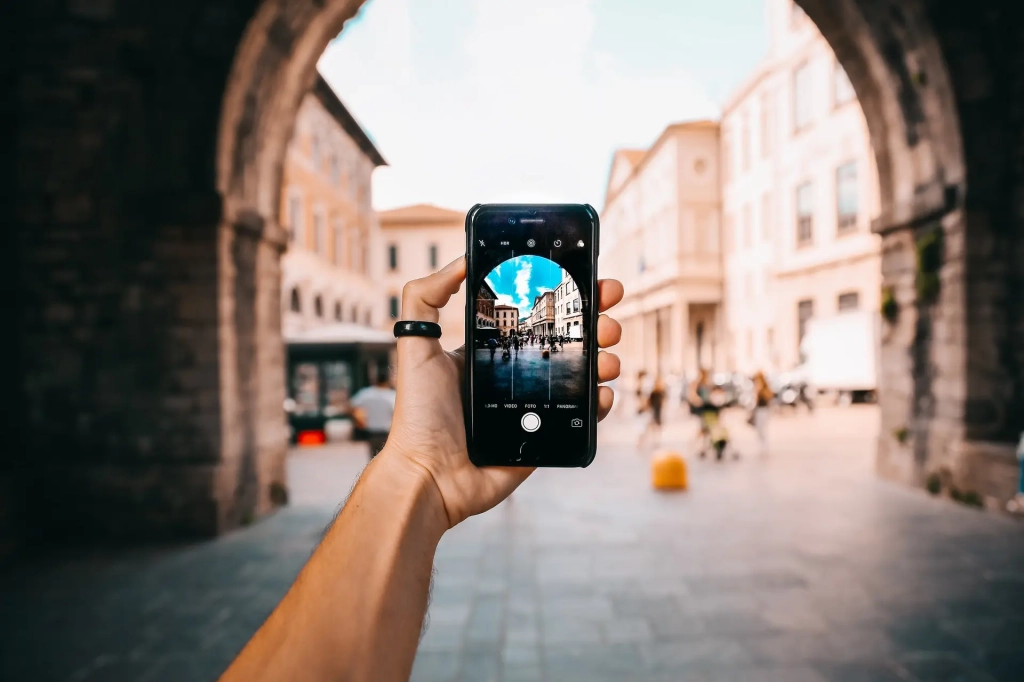
In the era of digital nomadism and global connectivity, the influence of social media on tourism is undeniable. Content creators, bloggers, and social influencers have the power to shape perceptions, shift travel trends, and significantly impact destinations worldwide.
Social influencers, content creators, and bloggers have become powerful catalysts for change, shaping the narrative and influencing tourist behavior, offering a unique opportunity to promote sustainable tourism practices and foster a balanced growth that benefits local communities while preserving the authenticity of a destination.
When they focus on sustainable tourism practices, their messages can encourage responsible travel behaviors. By highlighting eco-friendly accommodations, sustainable dining options, and experiences that contribute to local economies, influencers can guide their audience towards more mindful travel choices.
Empowering Social Influencers and Bloggers to Foster Balanced and Sustainable Tourism
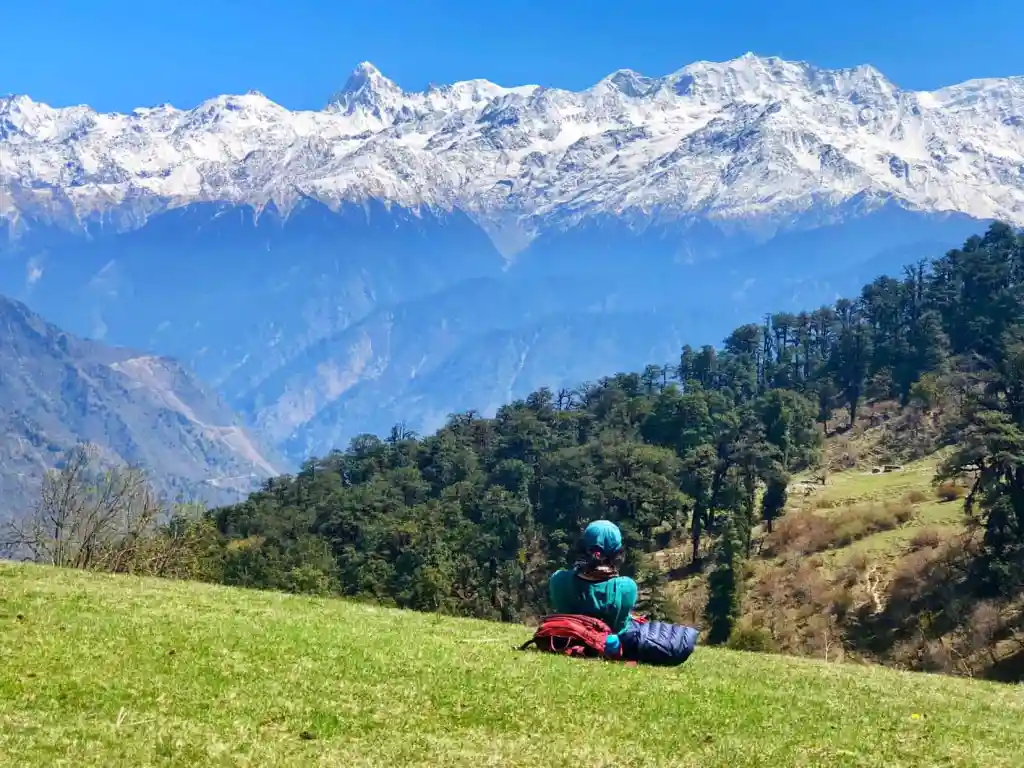
Harnessing the power of social influencers, content creators, and bloggers brings immense potential to foster balanced and sustainable tourism growth while preserving the authenticity of a destination. Collaboration, transparency, and authenticity are crucial. Choosing the right influencers, avoiding greenwashing, and ensuring alignment with the destination’s sustainability goals are essential for responsible partnerships. By promoting sustainable practices, partnering with local communities, and advocating for responsible travel, these influential voices can inspire travelers worldwide to make informed choices and positively contribute to local communities and conservation efforts. To achieve equilibrium in sustainable tourism, it is crucial to continue collaborating with bloggers and influencers, nurturing their creativity and ensuring the long-term preservation of destinations for generations to come.
Here’s how social influencers and content creators can become advocates for sustainable tourism:
Creating a Narrative of Sustainable Tourism:
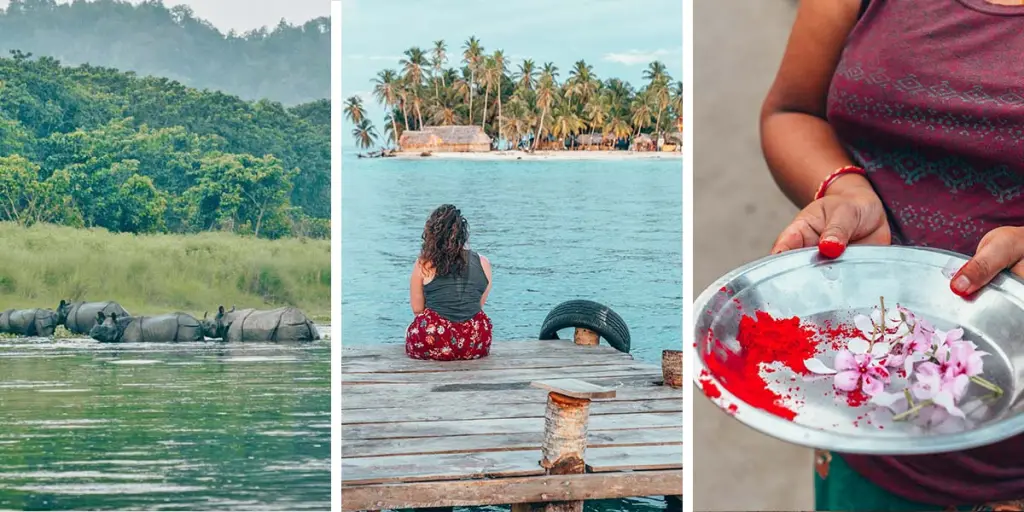
Social influencers, content creators, and bloggers have the power to shape the narrative around a destination’s sustainability efforts. Social influencers, content creators, and bloggers have the power to shape the narrative around a destination’s sustainability efforts. By showcasing sustainable practices, highlighting local experiences, and emphasizing the importance of responsible travel, they can inspire their followers to adopt a similar mindset while exploring new destinations. Collaborations with local conservation efforts, highlighting indigenous cultures, and promoting responsible travel choices can inspire tourists to embrace sustainability.
Azores – “Islands of Sustainability” Photo Challenge:
This campaign encouraged travel bloggers and photographers to capture the Azores’ commitment to sustainability through photos and stories. The stunning visuals and engaging narratives showcased the islands’ unique ecosystems, responsible practices, and local culture, attracting environmentally conscious travelers seeking authentic experiences.
Botswana – Wildlife Conservation:
Botswana’s tourism board partnered with social media influencers, particularly micro-influencers, who had a genuine interest in sustainability and wildlife conservation. These influencers were invited to experience responsible tourism practices first-hand, such as ethical safaris and community-based tourism initiatives. By sharing their experiences with dedicated audiences, they helped position Botswana as a sustainable wildlife tourism destination, influencing travelers to choose ethical experiences and contribute to conservation efforts.
Peru – “Taste of Tradition” Campaign:
Focusing on sustainable gastronomy, Peru partners with food bloggers and influencers to experience local food practices and support small-scale producers. By sharing their culinary journeys, they promote responsible tourism and support the preservation of traditional food cultures.
Spain – “Accessible Camino” Initiative:
Making the Camino pilgrimage accessible to everyone, Spain collaborates with disability influencers to document their experiences on accessible routes. This raises awareness about inclusive tourism and inspires wider participation.
Iceland – “360° Sustainability” initiative:
Partnering with virtual reality content creators via immersive storytelling, Iceland offers immersive experiences showcasing its pristine landscapes and responsible tourism options. This allows viewers to virtually explore the destination while understanding its commitment to sustainability, fostering an emotional connection and responsible travel aspirations.
Aruba – “Carnaval Reimagined”:
Aruba’s renowned carnival partnered with eco-influencers to showcase their commitment to sustainability initiatives like waste reduction and energy efficiency. By highlighting responsible practices and inspiring eco-conscious event management, they attract responsible travelers and promote sustainability within the tourism industry.
Italy – “Borgo dei Borghi”:
The “Borghi Autentici d’Italia” campaign highlights the unique culture and heritage of small, authentic Italian villages. This upcycling ttourism initiative revitalizes abandoned villages through artistic interventions and community-driven projects. Partnering with creative influencers who document the transformation process, the campaign attracts responsible travelers seeking unique experiences and supports the revival of rural communities. The campaign promotes responsible tourism that benefits these off-the-beaten-path destinations and fosters cultural preservation.
Thailand – “Silk Road Rediscovered”:
Highlighting responsible silk production and traditional weaving techniques, Thailand collaborates with fashion influencers to showcase eco-friendly fashion and cultural heritage. This Sustainable Fashion Tourism initiative promotes responsible tourism that supports local artisans and empowers communities reliant on traditional crafts.
Greece – “Island Hopping Collective”:
Greece’s “Beyond the Beaches” Influencer initiative empowers local micro-influencers from various Greek islands to create authentic content showcasing lesser-known destinations and community-run tourism experiences. This promotes balanced growth, distributes tourism benefits beyond popular hotspots, and fosters meaningful cultural connections, while promoting responsible tourism practices and authentic experiences that benefit local communities and preserve cultural heritage.
Costa Rica – “Reforesting Paradise” Campaign:
Partnering with eco-conscious influencers who actively participate in reforestation projects, this campaign highlights regenerative tourism practices. Sharing their experiences and the positive impact on biodiversity, they inspire responsible travel choices and contribute directly to restoring ecosystems.
Guatemala – “Mindful Journeys”:
Partnering with wellness influencers, Guatemala showcases eco-lodges, organic farms, and mindfulness retreats that prioritize both sustainability and personal well-being. This attracts conscious travelers seeking holistic experiences that contribute to environmental and community well-being.
Barbados – “Mindful Tourism Blogger FAM Trip”:
Barbados Tourism Marketing Inc. orchestrated a ‘Mindful Tourism Blogger FAM Trip’, inviting influential travel and wellness bloggers to experience the island’s dedication to mindfulness and sustainability firsthand. The campaign highlighted eco-friendly accommodations, like solar-powered beachfront cottages, farm-to-table dining experiences, and wellness activities including yoga sessions by the sea and guided meditation in the lush, tropical gardens. By engaging with bloggers who focus on eco-conscious living and wellness travel, Barbados effectively positioned itself as a destination for travelers seeking restorative escapes that also respect the local ecosystem. The content generated from this FAM trip reached a niche, engaged audience, fostering an image of Barbados as not only a place of natural beauty but also a leader in mindful and sustainable tourism practices.
Partnering with Local Communities:
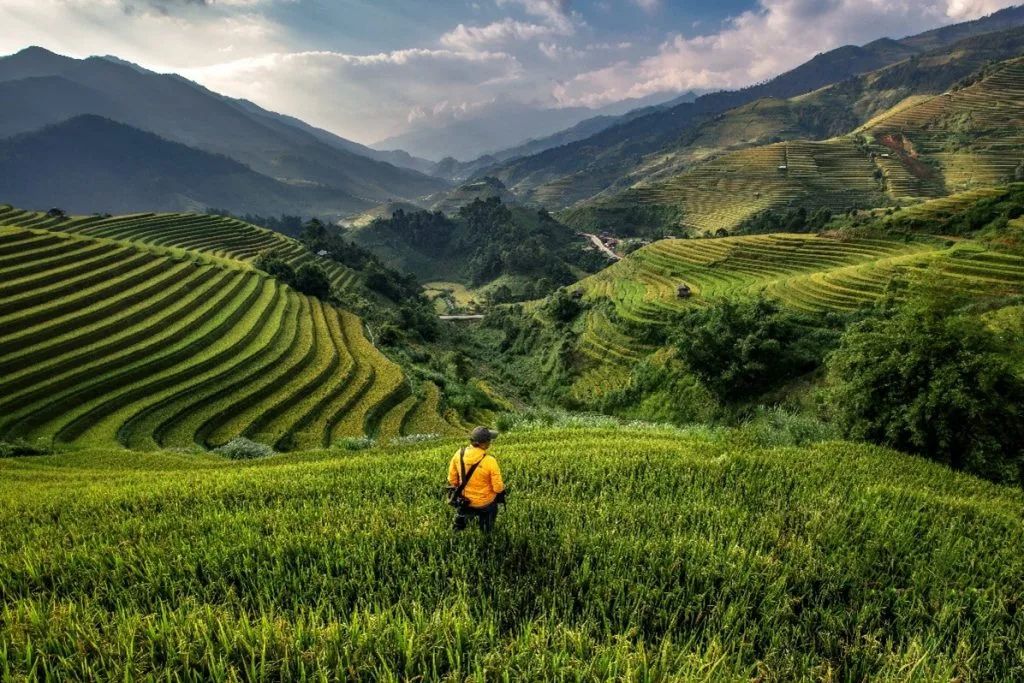
To achieve a balanced growth, it is crucial to involve local communities in the tourism development process. Bloggers and content creators can play a vital role by collaborating directly with local businesses, artisans, and community members, showcasing their work, stories, and traditions. Influencers can promote tourism that benefits local communities by showcasing unique local experiences, crafts, and cuisine, thus driving economic benefits directly to residents.
Palawan, Philippines – Indigenous Craftmanship
The El Nido Municipality in Palawan partnered with local influencers who championed sustainable tourism practices. These influencers collaborated with local communities, promoting interactive experiences like mangrove planting, volunteering at animal sanctuaries, and supporting indigenous craftsmanship. Through their content, they raised awareness about preserving the natural beauty of Palawan and benefiting local communities.
Bhutan – “Happiness Ambassador” Initiative:
Known for its focus on Gross National Happiness, Bhutan collaborated with bloggers and content creators to promote sustainable and mindful travel practices. And who align with their philosophy of high-value, low-impact tourism. To share the philosophy of Gross National Happiness with the world, Bhutan partnered with influencers who embody “GNH” values, focusing on wellbeing, community, and environmental sustainability. By showcasing authentic experiences, unique cultural experiences and responsible travel practices, the campaign attracts conscious travelers who contribute significantly to the local economy while minimizing environmental impact and promotes Bhutan’s unique approach to development.
The Azores – “Nature Ambassadors” Program:
This initiative selects local content creators passionate about their islands’ environment and culture. These “Ambassadors” share authentic experiences, responsible practices, and hidden gems, promoting balanced tourism that benefits island communities directly.
New Zealand – “Mana Whenua Storytelling Collective”:
This initiative empowers Maori youth as content creators, sharing their cultural heritage and environmental knowledge through captivating stories and digital art. Collaborating with eco-influencers, they promote responsible tourism that respects indigenous culture and contributes to local communities.
The Canary Islands – “Myths & Legends Reimagined”:
Partnering with local artists and influencers, this campaign retells traditional myths and legends through interactive digital experiences. By merging storytelling with augmented reality and gamification, it attracts younger audiences and promotes responsible tourism rooted in cultural heritage.
Cambodia – Homestay Hero” Initiative:
Partnering with local travel bloggers and content creators, this campaign focused on promoting homestays in rural Cambodia. By showcasing authentic cultural experiences and the opportunity to directly support local communities, the campaign fostered responsible tourism, empowered local homestay owners, and preserved cultural heritage.
Educating and Advocating for Responsible Travel:
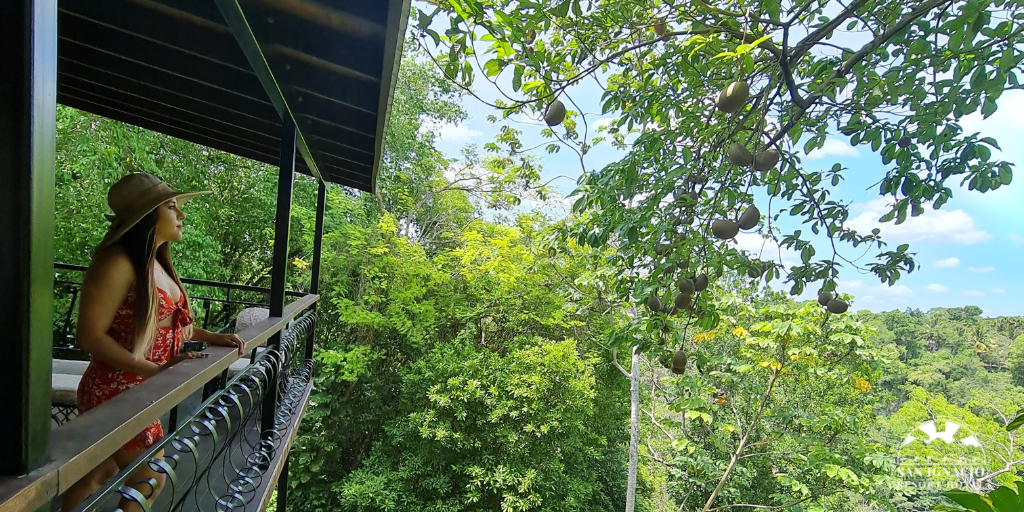
Bloggers and influencers have the power to educate their audiences about responsible travel practices and encourage them to have a positive impact on the destinations they visit. Social Influencers can act as educational bridges, informing tourists about responsible behavior, etiquette, and cultural sensitivities. They can debunk myths, promote respect for local customs, and encourage mindful interactions with the environment and communities. Through their content, influencers can educate their audience on sustainable practices, such as minimizing plastic use, respecting wildlife, and contributing to conservation efforts. By sharing tips, providing eco-conscious recommendations, and showcasing responsible tourism initiatives, they empower tourists to become more conscientious travelers.
Iceland –“LeaveNoTraceIceland”:
Social Influencers in Ireland launched the #LeaveNoTraceIceland campaign, educating tourists about responsible hiking practices, waste disposal, and respecting the delicate natural balance. This led to a noticeable reduction in environmental damage and irresponsible behavior.
The Galapagos Conservancy – “Citizen Science Expeditions”:
Engaging citizen scientists, including eco-travel influencers, this program contributes to conservation efforts like monitoring nesting sea turtles. Influencers share their experiences, educating viewers about responsible tourism and inspiring participation in conservation initiatives.
The Philippines – “Banca Nation” Initiative:
Highlighting traditional outrigger canoes, “Banca Nation” empowers local boat operators and encourages community-based tourism. They partner with travel bloggers and photographers to showcase authentic island experiences and responsible tourism practices.
South Korea – “Eco-Stamp Hunt”:
This unique initiative blends tourism with sustainability via gamification. Participants, including micro-influencers, collect digital stamps by engaging in eco-friendly activities like using public transportation or visiting eco-certified businesses. This encourages responsible behavior and promotes lesser-known destinations.
Belize – “Sister Reef” and “Maya Reef Guardians” Projects:
To protect its marine ecosystems, Belize partnered with the World Wildlife Fund in the “Sister Reef Project,” a campaign to raise awareness and funds for reef conservation. Influencers and bloggers were engaged to visit and dive at the Belize Barrier Reef and its “sister reef” in Australia, sharing their underwater experiences and the importance of protecting these critical ecosystems. Through compelling storytelling and breathtaking visuals, the campaign highlighted the beauty of the reefs and the urgent need for conservation, encouraging donations and responsible tourism practices.
The gamified “Maya Reef Guardian” app lets travelers, including micro-influencers, play as “Guardians” protecting the Belize Barrier Reef. Through educational challenges and responsible tourism activities, they earn rewards and raise awareness about conservation efforts, encouraging players to translate their digital actions into responsible on-ground choices.
Switzerland – “Swisstainable AI Assistant”:
The Swisstainable campaign partnered with eco-conscious influencers to promote responsible travel practices like using public transportation, supporting local businesses, and choosing sustainable accommodation. The influencers showcased the ease and appeal of sustainable travel in Switzerland, attracting eco-tourists.This innovative AI-powered chatbot, trained on sustainability principles, interacts with tourists, recommending responsible activities, transportation options, and eco-friendly accommodations. Partnering with sustainability-focused influencers who engage with the AI, the campaign normalizes responsible choices and makes sustainable travel easily accessible.
The Seychelles – “Green Footprint Calculator”:
This unique tool allows tourists, including travel bloggers, to calculate their carbon footprint associated with their trip to the Seychelles. Partnering with sustainability influencers who offset their trips and encourage viewers to do the same, the campaign promotes transparency and responsible travel decision-making.
Colombia – “Volunteer from Anywhere”:
This virtual colunteering program allows remote volunteers, including digital nomads and online influencers, to contribute to conservation projects in Colombia through online tasks. This innovative approach expands engagement, raises awareness about conservation efforts, and attracts responsible travelers seeking meaningful experiences.
Scotland – “Nature Lab”:
Partnering with outdoor enthusiasts and nature photographers, this campaign highlighted Scotland’s stunning landscapes and responsible outdoor activities. The influencers documented their commitment to Leave No Trace practices, inspiring viewers to respect and protect the natural environment during their travels. This citizen science platform invites tourists and influencers to contribute data on wildlife sightings and environmental observations via collaborattive research. Analyzing this data in collaboration with researchers helps protect biodiversity and informs responsible tourism management practices.
Bali, Indonesia – “Live from Paradise, Act Sustainably”:
Influencers livestream their eco-friendly adventures in Bali, engaging viewers in real-time conversations about responsible travel practices. This interactive approach allows viewers to ask questions, learn about sustainability efforts, and make informed travel decisions.
Croatia – “Grandparents & Grandkids Explore”:
This intergenerational learning campaign connects local grandparents with travel-loving influencers and their grandchildren. Together, they explore Croatia’s cultural heritage and natural wonders, fostering intergenerational knowledge exchange and promoting responsible tourism across generations.
Rwanda: “Gorilla Guardians” Program:
This initiative empowers local women as “Gorilla Guardians,” responsible for protecting mountain gorillas and educating tourists about responsible tourism practices. Partnering with travel bloggers and vloggers who document their interactions with these inspiring women, the campaign raises awareness about conservation efforts and promotes responsible tourism that directly benefits local communities.
Promoting Balanced Growth:
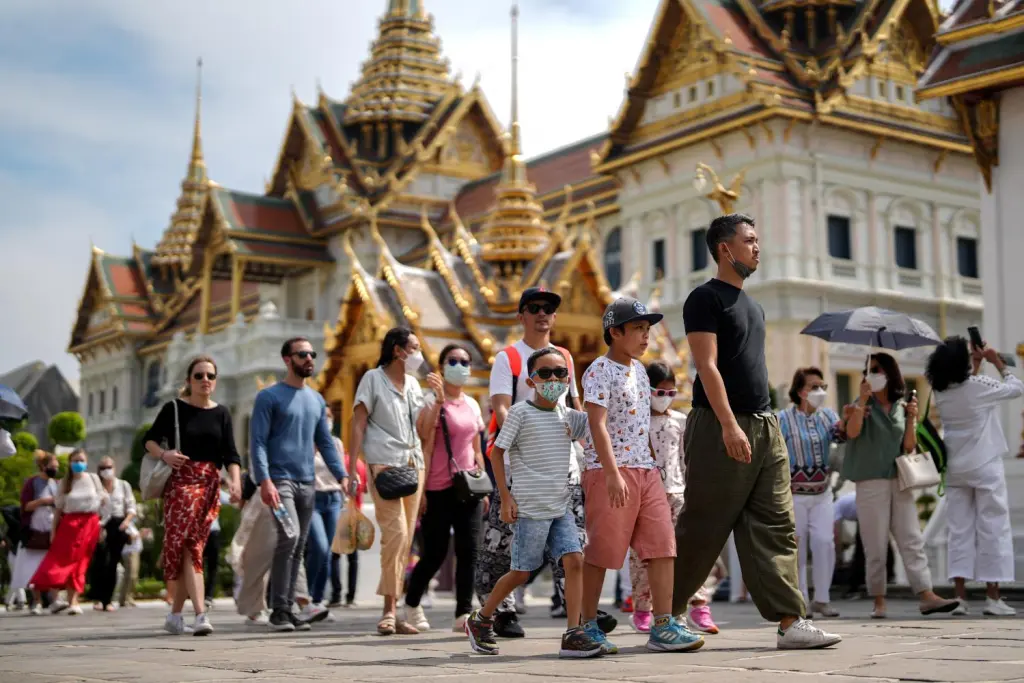
Influencers can steer tourists away from overcrowded hotspots and promote lesser-known destinations, distributing economic benefits more equitably. Showcasing locally-owned businesses, homestays, and community-run tours empowers local communities and fosters cultural authenticity.
Kerala, India – #KeralaBlogExpress:
Responsible influencer campaigns like #KeralaBlogExpress highlighted the diverse homestays and responsible tourism initiatives, promoting a more immersive and distributed tourism experience, benefiting local communities beyond established resorts.
Costa Rica – Eco-friendly Experiences:
Costa Rica successfully leveraged bloggers and influencers to promote sustainable tourism practices and enrich visitors’ experiences. By collaborating with content creators who highlighted eco-friendly activities (such as wildlife conservation programs, sustainable coffee tours, and organic farming), Costa Rica effectively communicated its commitment to conservation, education, and sustainable economic growth.
New Zealand: “Tiaki Promise”:
This national initiative encourages visitors to “care for people and place.” They partnered with Maori influencers and content creators to promote the Tiaki Promise principles: respecting the environment, supporting local communities, and experiencing New Zealand authentically. . Influencers and bloggers played a crucial role in spreading the word about the Tiaki Promise, using their platforms to educate travelers on how to respect the natural environment, culture, and heritage of New Zealand. This resulted in increased awareness and responsible behavior among tourists.
Norway – Responsible Travel:
The Norwegian tourism board partnered with sustainable travel bloggers and influencers to promote eco-friendly experiences and highlight Norway’s commitment to sustainability. These influencers showcased activities like electric car road trips, sustainable wildlife encounters, and responsible hiking practices. By collaborating with those who aligned with their values, Norway effectively communicated its dedication to sustainable tourism and inspired travelers to explore the country responsibly.
South Africa – “Inclusive Safari Experiences”:
Collaborating with disability influencers, South Africa promotes accessible ecotourism initiatives like specialized safari vehicles and inclusive trails. By sharing their experiences and advocating for greater accessibility, they empower individuals with disabilities to enjoy responsible travel adventures.
Holding Destinations Accountable:
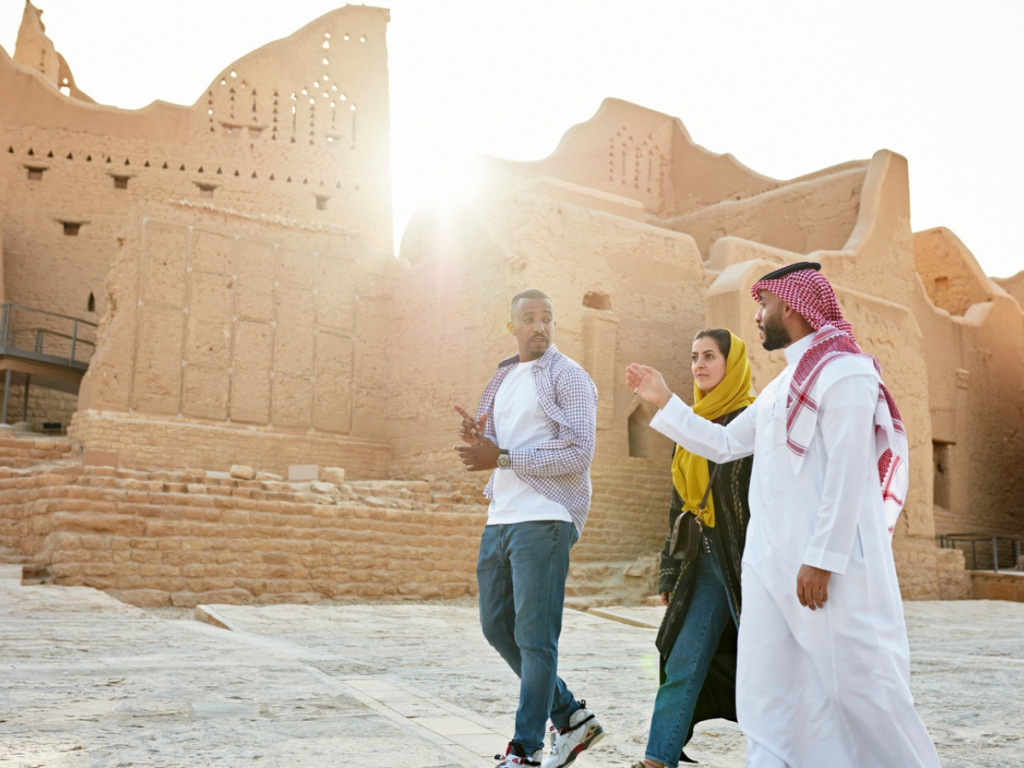
Influencers can leverage their platform to hold destinations accountable for their sustainability commitments. Highlighting greenwashing practices, unsustainable developments, or exploitation of communities can create positive pressure for change.
Boracay, Philippines – Island Closure:
Social influencers exposed the negative impacts of unchecked tourism, leading to a government shutdown and rehabilitation efforts focused on sustainable development. This serves as a cautionary tale and a reminder of the influencer’s power to hold destinations responsible.
Brazil – The Amazon Conservation Association’s “Defenders of the Rainforest” Program:
Empowering Amazonian communities as “Defenders,” this program partners with conservation-focused influencers to document their work protecting the rainforest and promoting responsible tourism that supports these communities.
Sweden – “Waste-to-Value Experiences”:
Showcasing innovative waste management practices and upcycling initiatives to foster circular economy ttourism, Sweden collaborates with sustainability influencers to document repurposed accommodations, eco-friendly restaurants, and responsible souvenir production. This promotes circular economy principles in tourism and inspires responsible consumption choices.
Slovenia – “Footprint Tracker Challenge”:
Using a personalized mobile app, tourists, including micro-influencers, track their environmental impact throughout their trip. The data-driven app suggests responsible choices and rewards sustainable behavior, gamifying sustainability and promoting environmentally conscious travel habits.
Promote Off-Peak Visits:
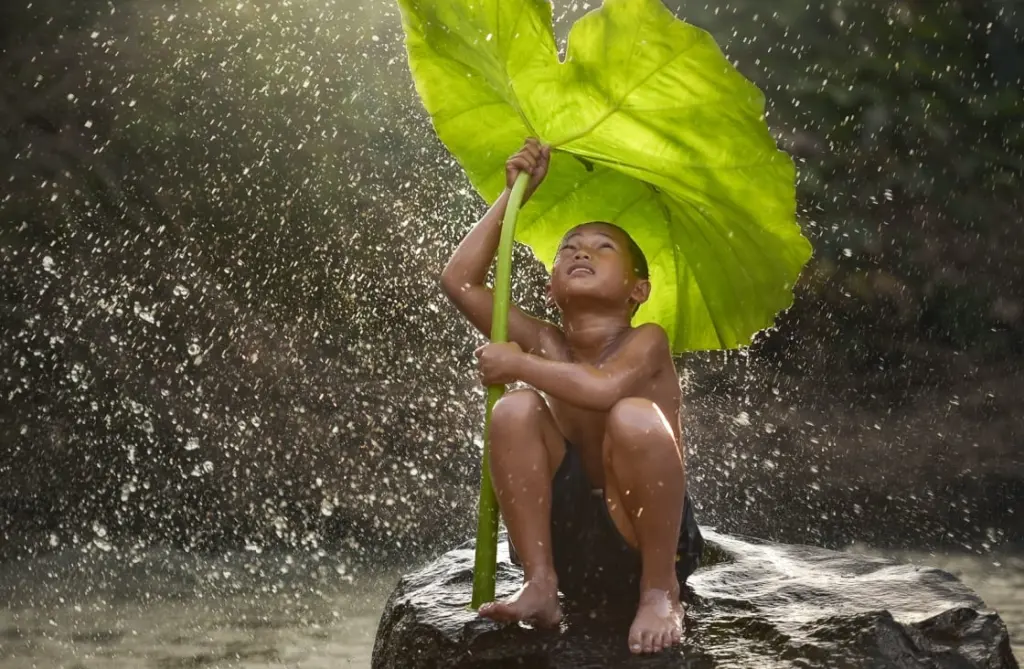
To combat over-tourism, influencers can highlight the beauty and appeal of destinations during off-peak seasons, helping to distribute tourist numbers more evenly throughout the year.
Faroe Islands “Closed for Maintenance, Open for Voluntourism”:
The Faroe Islands initiated a unique campaign called “Closed for Maintenance, Open for Voluntourism” by partnering with a Dutch travel blogger, Nienke Krook. The campaign invited tourists to visit the islands during the off-season and take part in volunteer projects focused on preserving the environment and maintaining the natural beauty of the islands. Through Nienke’s blog and social media content, the campaign garnered significant attention, drawing responsible travelers who contributed to the sustainable development of the Faroe Islands.
Iceland – “Iceland Wants to Be Your Friend” campaign:
Inspired by the success of the “Iceland Wants to Be Your Friend” campaign, the Icelandic tourism board continued its collaboration with content creators and social influencers to promote sustainable tourism practices. They engaged influencers to participate in responsible adventures, such as glacier clean-ups, promoting eco-friendly transportation options, and showcasing local initiatives supporting the environment. Through these partnerships, Iceland managed to shift the focus from overcrowded tourist spots to sustainable and immersive experiences, benefiting local communities and the environment.
Collaborate with Eco-Friendly Brands:
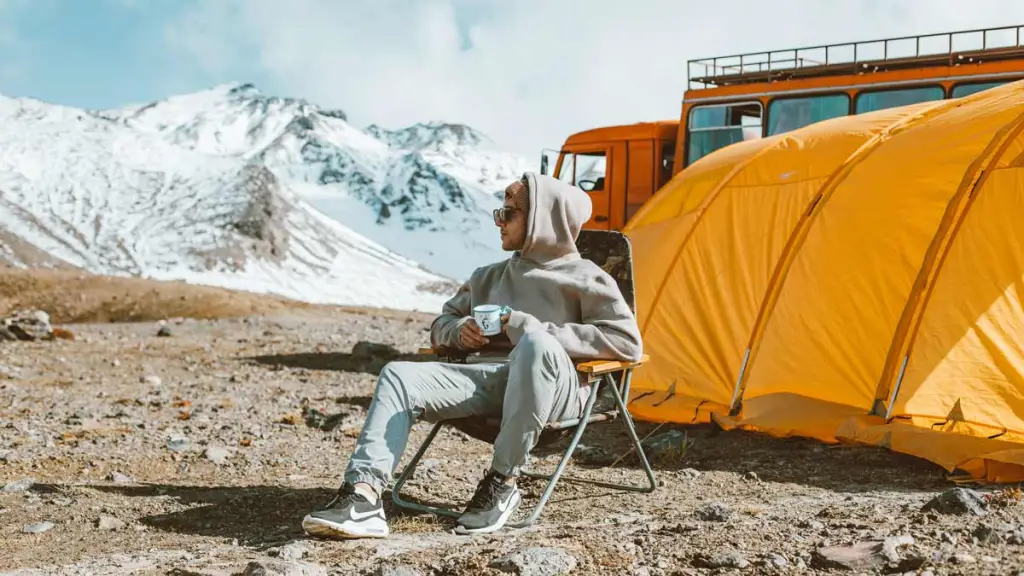
Partnering with eco-friendly accommodations, tour operators, and other sustainable travel brands can help promote practices that minimize the environmental impact of tourism.
Patagonia – “Footprint Chronicles”:
This campaign partnered with micro-influencers who embodied responsible travel values. They documented their adventures while highlighting sustainable practices and responsible choices, inspiring viewers to follow suit. This authenticity resonated deeply with audiences, driving engagement and eco-conscious travel decisions.
The TreadRight Foundation – “Changemakers” program:
Established by leading travel companies, TreadRight partners with influencers on various initiatives. Their “Changemakers” program empowers local youth as tourism ambassadors, while the “Destination Sustainability Awards” recognize and promote best practices through influencer campaigns.
The World Wildlife Fund – “My Big Green Adventure” Campaign:
WWF partners with travel bloggers and videographers on eco-adventures, documenting their encounters with endangered species and responsible tourism practices. These compelling stories raise awareness about conservation efforts and inspire viewers to contribute.
The “Extraordinary Travel Festival” – An Engine for Balanced Tourism:
The Extraordinary Travel Festival is a blogger event crafted to inspire a more balanced approach to global tourism. At its core, the festival showcases unique, off-the-beaten-path destinations and experiences that encourage travelers to bypass overcrowded tourist spots in favor of more remote, unexplored areas. By doing so, it spreads the benefits of tourism more evenly and reduces the strain on heavily trafficked sites, highlighting the importance of spending more time in each destination, engaging with local communities, and understanding the cultural nuances that define a place. Through its focus on thoughtful travel and respect for both natural and cultural heritage, the Extraordinary Travel Festival plays a pivotal role in promoting a tourism model that is enriching, equitable, and sustainable, inspiring attendees to integrate these principles into their travel offerings, and to collaborate with local artisans, farmers, and other stakeholders to create travel experiences that are not only memorable but also socially and environmentally responsible.
UnTours – Slow Travel Network
Through the Slow Travel Network, “Unfluencers” develop stories that highlight outstanding and replicable ways travelers and the tourism industry are making the world better. Launched by UnTours, the Slow Travel Network’s mission is to generate more “human connections per traveler mile” (CPTMs) every year. This is done with the help of UnFluencers – content creators who care about traveling for good.
Other Inspiring Case Studies of Influencer-Driven Sustainable Tourism:
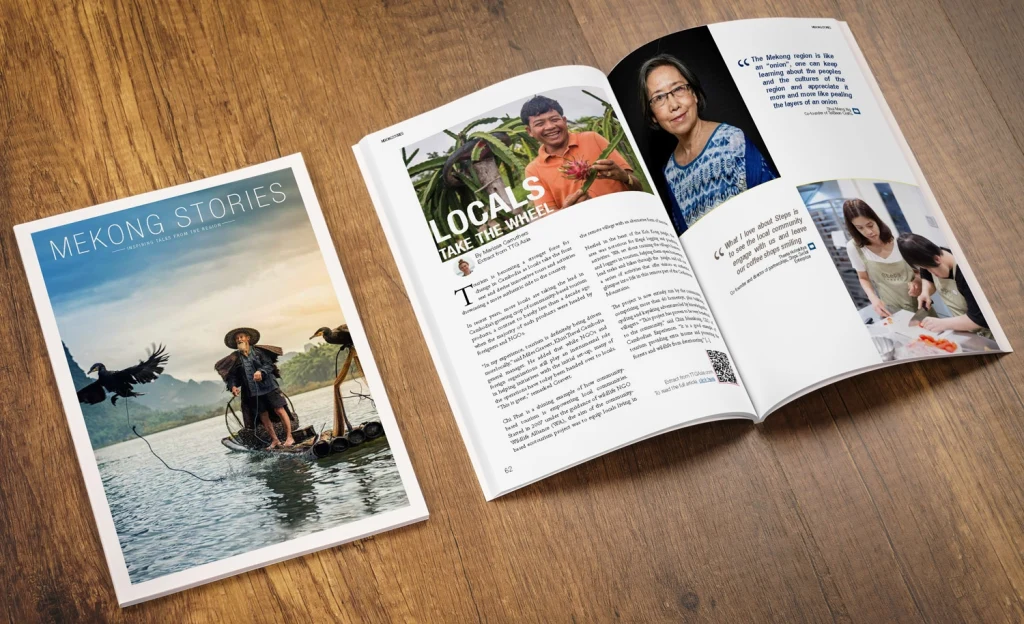
These case studies represent a small selection of destinations that have successfully harnessed the power of bloggers, content creators, and social influencers to foster sustainable tourism, conscious travel, and balanced growth. By staying informed about emerging technologies, fostering meaningful partnerships, and prioritizing local communities, destinations can effectively communicate their dedication to sustainable practices, inspire responsible travel, and contribute to the long-term preservation of their natural and cultural assets.
Please see other inspiring case studies below, and feel free to visit my TourismCampaigns.com blog for a globally-unique curation of hundreds of the most creative and innovative tourism campaigns over the past 10 years.
The Philippines: Reviving Boracay
The Philippines took drastic measures to combat over-tourism and environmental degradation on Boracay Island by closing it to tourists for six months for rehabilitation. Influencers and bloggers were key in communicating the reasons for the closure and later in promoting the island’s reopening under new, strict environmental regulations. Through their content, they educated their audience on the importance of sustainable travel practices and showcased the rejuvenated beauty of Boracay, thereby supporting a more sustainable tourism model.
Slovenia: Green & Sustainable Messaging
Recognized as one of the world’s most sustainable countries, Slovenia has effectively used influencers to communicate its green message. By inviting bloggers and social media influencers to experience its sustainable tourism offerings, such as eco-friendly accommodations, organic food producers, and green adventures, Slovenia has showcased how tourism can support conservation efforts and promote the wellbeing of local communities. Influencers have highlighted Slovenia’s commitment to sustainability, from its capital Ljubljana, awarded the Green Capital of Europe, to its picturesque, responsibly managed natural attractions.
Australia: #EmptyEsky Campaign
In the wake of the devastating 2019-2020 bushfires, Australia launched the #EmptyEsky campaign, encouraging tourists to visit bushfire-affected regions with an empty cooler (Esky) and support local businesses by filling it up with local produce. Influencers and bloggers were instrumental in spreading the word, sharing their journeys, and highlighting the resilience of affected communities. This campaign not only drove economic recovery in the regions but also promoted a form of tourism that directly benefits local economies and fosters community solidarity.
Rwanda: Conservation Through Tourism
Rwanda has positioned itself as a leader in conservation-driven tourism, focusing on the protection of its mountain gorillas and natural heritage. By regulating the number of visitors and promoting high-value, low-impact tourism, Rwanda has leveraged the influence of content creators to showcase its conservation efforts and the unique experiences it offers. Influencers visiting Rwanda have brought global attention to the importance of conservation, sharing how tourism revenue is being used to protect endangered species and support community development.
Japan: “The Sunrise Project”
Japan’s “The Sunrise Project” focuses on promoting lesser-known destinations within the country to international tourists, aiming to alleviate over-tourism in popular spots like Tokyo and Kyoto. Through partnerships with influencers who specialize in niche travel and cultural experiences, the campaign showcases the unique aspects of rural Japan, including traditional crafts, local festivals, and regional cuisine. This approach helps in distributing tourist traffic more evenly across the country, supporting local economies, and preserving the integrity of heavily visited sites.
Scotland: #ScotlandIsNow
Scotland launched the #ScotlandIsNow campaign as a way to position itself as a leading destination for sustainable and responsible tourism. The campaign collaborates with influencers who are passionate about the outdoors, conservation, and cultural heritage. By creating content that emphasizes Scotland’s natural beauty, wildlife conservation efforts, and initiatives to reduce tourism’s carbon footprint, the campaign inspires travelers to consider their environmental impact and engage in more sustainable travel behaviors.
South Africa: “Meet South Africa”
The “Meet South Africa” campaign leverages influencers to tell the diverse stories of the country’s people, landscapes, and wildlife. By focusing on community-based tourism and conservation projects, the campaign highlights how tourism can have a positive impact on conservation efforts and the empowerment of local communities. Influencers visit projects that are making a real difference, from penguin rehabilitation in Cape Town to community art initiatives in Johannesburg, showing their followers the broader impacts of choosing where and how to travel.
Norway: Sustainable Destination Standard
Norway has developed a Sustainable Destination Standard, a certification awarded to destinations that work systematically to reduce the negative impact of tourism while enhancing the positive contributions. Influencers play a crucial role in this strategy by visiting these certified destinations and sharing practices that visitors can adopt to travel more sustainably. Their content focuses on how travelers can support local economies, respect nature, and contribute to the preservation of cultural heritage.
Costa Rica: “Save the Americans”
Costa Rica’s “Save the Americans” campaign is a unique twist on conservation messaging, targeting overworked North American travelers with the message that visiting Costa Rica can not only save them from burnout but also contribute to the country’s conservation efforts. Influencers who focus on wellness, eco-tourism, and adventure travel are engaged to showcase the country’s biodiversity, sustainable tourism practices, and the ways in which tourism can support conservation.
The Maldives: Coral Regeneration Projects
The Maldives has engaged influencers in its coral regeneration projects, highlighting the impacts of climate change on its marine ecosystems. Through hands-on participation in coral planting activities and sharing their experiences online, influencers raise awareness among their followers about the importance of marine conservation. This initiative not only educates about environmental issues but also showcases how tourism can play an active role in ecosystem restoration.
Finland: “Rent a Finn” Campaign
Finland’s innovative “Rent a Finn” campaign invited people to learn about the Finnish way of life, which is closely connected to nature, to promote happiness and sustainability. The initiative paired visitors with Finnish hosts who introduced them to the peaceful, sustainable lifestyle that Finland is known for, including spending time in nature, foraging, and sauna culture. Influencers and content creators were invited to participate and share their experiences, effectively showcasing Finland’s commitment to well-being and environmental stewardship. This campaign not only promoted Finland as a destination but also educated a global audience on sustainable living practices.
Canada: Indigenous Tourism Association
The Indigenous Tourism Association of Canada (ITAC) has been instrumental in promoting indigenous-led tourism experiences through collaborations with influencers and content creators. By highlighting authentic cultural experiences, wildlife tours, and conservation efforts led by indigenous communities, ITAC has not only supported the economic development of these communities but also educated a broad audience on the importance of preserving indigenous cultures and sustainable tourism practices. Influencers’ stories and visuals bring to light the profound connections between indigenous cultures and their natural environments, offering travelers a deeper, more respectful way to explore Canada.
Zambia: #SuperchargeYourSafari
Zambia’s #SuperchargeYourSafari campaign aimed to position the country as a premier sustainable safari destination. By leveraging influencers with a passion for wildlife and conservation, the campaign showcased Zambia’s unique safari experiences, conservation success stories, and community tourism initiatives. Content creators shared their encounters with Zambia’s wildlife, conservation efforts, and the benefits of tourism to local communities, highlighting how sustainable tourism can contribute to conservation and community development. This approach not only attracted eco-conscious travelers but also emphasized the importance of preserving natural habitats and wildlife.
Austria: “Sustainable Austria”
Austria’s “Sustainable Austria” campaign focuses on promoting the country’s eco-friendly travel options, from green hotels and organic restaurants to sustainable outdoor activities. Through partnerships with influencers who specialize in eco-travel and sustainability, Austria showcases how visitors can enjoy its stunning landscapes and cultural offerings while minimizing their environmental footprint. Influencers share their experiences with Austria’s sustainable tourism offerings, inspiring their followers to consider more responsible travel choices that align with preserving the environment and supporting local economies.
Slovenia: “I Feel Slovenia” Green Influencers:
Slovenia handpicked environmentally conscious influencers who aligned with their green tourism goals. These influencers showcased the country’s stunning natural beauty while promoting responsible travel practices like hiking, cycling, and supporting local businesses. This resulted in a surge in green tourism and a positive shift in tourist behavior.
Aruba: “Respect the Gem” Campaign:
Partnering with diverse micro-influencers, Aruba launched this campaign to educate tourists about responsible behavior and cultural sensitivity. Through engaging content, they tackled issues like littering, wildlife protection, and respecting local customs, fostering a sense of responsibility among visitors.
Iceland: “Inspired by Iceland” Storytelling Campaign:
This initiative invited content creators to share their unique and sustainable travel experiences in Iceland. From exploring local farms to participating in conservation efforts, the campaign showcased the country’s commitment to sustainability while inspiring travelers to replicate responsible choices.
Belize: “FAMtastic FAM Trips”:
Belize invited travel bloggers and journalists on unique familiarization trips focused on sustainable practices. From exploring marine conservation efforts to learning about local farming and cultural traditions, these trips showcased Belize’s dedication to sustainability and inspired positive media coverage.
Thailand’s “Local Alike” Campaign:
This initiative partnered with local influencers to share their authentic experiences and hidden gems in Thailand. This shifted focus away from overcrowded tourist hotspots and promoted sustainable, community-driven tourism, benefiting local communities and preserving cultural authenticity.
Kenya: “Magical Kenya” Conservation Collaborations:
Kenya partnered with wildlife photographers and conservation influencers to raise awareness about endangered species and responsible wildlife tourism. This collaboration generated positive media coverage and increased support for conservation efforts, leading to more responsible tourist behavior.
Curaçao: “Green Ambassadors” Program:
This initiative identifies passionate local content creators as “Green Ambassadors.” These ambassadors receive training on sustainable practices and showcase responsible tourism options through captivating visuals and storytelling, promoting authentic local experiences and environmental awareness.
Indonesia: “Wonderful Indonesia” Ecotourism Campaign:
Partnering with eco-conscious travel bloggers and vloggers, this campaign highlighted Indonesia’s diverse ecotourism destinations and conservation efforts. The influencers documented their responsible travel experiences, inspiring viewers to explore the country while respecting its natural beauty and cultural heritage.
Costa Rica: “Embrace the Pure Life” Campaign:
This campaign partnered with micro-influencers focusing on healthy and sustainable living. They documented their experiences eco-lodges, organic farms, and outdoor activities, promoting Costa Rica’s commitment to healthy living and environmental protection, attracting wellness-focused and eco-conscious travelers.
Palau: “Pledge to Palau” Initiative:
This program requires visitors to watch a video about responsible tourism practices before entering the country. They then “pledge” to respect the environment and culture. Partnering with influencers who document their adherence to the pledge further reinforces responsible behavior and raises awareness about Palau’s commitment to sustainability.
Finland: “Slow Travel Finland” Influencer Collaboration:
Encouraging mindfulness and responsible travel, this campaign partnered with micro-influencers who documented their slow travel experiences in Finland. From relaxing in nature spas to exploring local villages, the campaign promoted responsible travel practices and a deeper connection with the destination.
Colombia: “BiodiversiTours” Influencer Program:
This initiative connects travel bloggers with local communities offering biodiversity-focused tours. The influencers document their unique experiences, showcasing Colombia’s rich biodiversity and promoting responsible tourism that benefits local communities directly involved in conservation efforts.
The Philippines: “It’s More Fun in the Philippines” Community-Driven Campaign:
This campaign partnered with local content creators and influencers to showcase responsible tourism experiences offered by communities across the Philippines. The focus on local stories and authentic encounters fostered responsible travel, empowered communities, and promoted cultural preservation.
Ecuador: “Chocó Rainforest Photo Contest”:
This campaign partnered with nature photographers to capture the beauty and ecological importance of the Chocó Rainforest, a threatened biodiversity hotspot. The stunning visuals and passionate storytelling raised awareness about conservation efforts and responsible tourism practices, attracting eco-conscious travelers.
Nepal: “Responsible Tourism Bloggers Network”:
This network connects responsible travel bloggers and content creators with local communities and tourism operators committed to sustainable practices. By sharing their experiences and promoting responsible options, the bloggers contribute to a shift in tourist behavior and benefit local communities directly involved in sustainability efforts.
Utah: “Leave No Trace Traveler” Campaign:
This initiative partnered with outdoor influencers to educate tourists about responsible outdoor recreation in Utah’s stunning landscapes. Sharing practical tips and Leave No Trace principles through engaging content, the campaign aimed to minimize environmental impact and promote responsible travel practices among outdoor enthusiasts.
Cape Verde: “Eco-Blogger Retreat”:
This unique program invited eco-bloggers and sustainable travel advocates to experience Cape Verde’s commitment to sustainability firsthand. By participating in conservation efforts, community projects, and responsible tourism activities, the influencers gained valuable insights and shared their experiences with their audience, encouraging responsible travel choices.
Greenland: “Midnight Sun Storytelling” Collaboration:
Greenland partnered with photographers and storytellers to capture the unique magic of the midnight sun phenomenon in a responsible manner. By minimizing their environmental impact and highlighting sustainable practices, the influencers showcased the destination’s commitment to responsible tourism while attracting nature lovers seeking unique experiences.
Slovenia: “Green & Active Weekends” Influencer Challenge:
This challenge invited fitness and outdoor influencers to experience Slovenia’s diverse green activities in a responsible manner. From cycling tours to hiking trails, the influencers showcased sustainable travel options and inspired viewers to explore Slovenia while respecting the environment.
Tanzania: “Wildlife Photography with Purpose” Program:
This initiative partnered with wildlife photographers who contribute to conservation efforts. By documenting ethical wildlife encounters and responsible tourism practices, the photographers raise awareness about responsible wildlife tourism and support conservation initiatives benefiting Tanzania’s stunning biodiversity.
Fiji: “Bula Bubble” Initiative:
During the pandemic, Fiji created a “Bula Bubble” allowing tourists to safely experience the islands while contributing to local communities. Partnering with influencers who documented their responsible travel experiences within the bubble, Fiji demonstrated its commitment to sustainability and attracted conscious travelers seeking a safe and responsible travel experience.
The Bahamas: “Out Islands Odyssey” Influencer Challenge:
Focusing on lesser-known islands beyond Nassau, this challenge invited adventure and eco-travel influencers to explore the Bahamas’ diverse Out Islands in a responsible manner. By showcasing unique experiences and responsible tourism options, the campaign aims to distribute tourism benefits more evenly and promote sustainable development in these often-overlooked gems.
Iceland: “Carbon-Neutral Influencer Trip”:
Recognizing the environmental impact of travel, Iceland partnered with sustainability-focused influencers on a carbon-neutral trip. By offsetting their emissions and showcasing responsible travel choices throughout the journey, the campaign fostered eco-consciousness among both influencers and viewers.
Spain: “Camino de Santiago Responsible Walk”: T
his campaign collaborated with travel bloggers and content creators who walked the famed Camino de Santiago pilgrimage route while adhering to responsible tourism principles. By highlighting sustainable practices like supporting local businesses and minimizing waste, the campaign encouraged responsible behavior among fellow pilgrims.
Indonesia: “Digital Nomad Visa” Influencer Initiative:
Attracting remote workers who embrace sustainable living, Indonesia partnered with digital nomad influencers to document their experiences working remotely in eco-friendly destinations. This campaign showcases opportunities for sustainable travel and work while contributing to local economies and fostering responsible development.
Norway: “Silent Route” Tourism Campaign:
Focusing on reducing noise pollution in sensitive fjords, Norway partnered with nature enthusiasts and filmmakers to document the beauty of fjords experienced in a quieter manner. By highlighting the advantages of electric boats and responsible tourism practices, the campaign promotes a more peaceful and sustainable way to explore these natural wonders.
Kenya: “Wildlife Whisperers” Collaboration:
This initiative empowers local Maasai communities as “Wildlife Whisperers,” sharing their knowledge and insights with responsible tourists. Partnering with travel bloggers and photographers who document these authentic interactions, the campaign fosters cultural understanding, responsible tourism, and empowers local communities to benefit directly from wildlife conservation.
Costa Rica: “Blue Flag Beaches” Influencer Challenge:
Focusing on clean beaches and responsible tourism, Costa Rica partnered with sustainability-focused influencers to visit and document their experiences at “Blue Flag” beaches, which adhere to strict environmental standards. This campaign promotes responsible beach tourism and raises awareness about environmental protection efforts.
Portugal: “Rehabilitation Retreats” Influencer Program:
Portugal collaborated with wellness and sustainability influencers to experience retreats focused on rehabilitation and conservation efforts. By highlighting the opportunity to contribute to positive change while enjoying a holistic experience, the campaign attracts conscious travelers and promotes responsible tourism with a purpose.
Bhutan – “GNH Happiness Accelerator”:
Collaborating with social media entrepreneurs and impact investors, Bhutan leverages crowdfunding platforms to support community-based sustainable tourism projects. Influencers document the impact of these projects, inspiring viewers to contribute and experience tourism that directly benefits local communities. These efforts helped raise awareness about Bhutan’s unique approach to tourism and inspired travelers to adopt a more mindful and sustainable travel mindset.
Costa Rica: Pioneering Eco-Tourism
Costa Rica is often cited as a success story in sustainable tourism, thanks in part to the role of bloggers and influencers in promoting its eco-tourism initiatives. Influencers have showcased the country’s efforts in conservation, wildlife protection, and community tourism projects. By emphasizing the natural beauty and biodiversity of Costa Rica while advocating for responsible travel practices, they have helped position the country as a leading eco-tourism destination.
Portugal: Revitalizing Rural Areas
Portugal has leveraged influencers to promote rural and lesser-known areas, thus distributing tourist numbers more evenly and alleviating over-tourism in hotspots like Lisbon and Porto. By showcasing the charm, history, and gastronomy of these regions, bloggers and influencers have helped attract visitors interested in authentic experiences while supporting local economies and preserving traditional lifestyles.
Bhutan: High-Value, Low-Impact Tourism
Bhutan’s unique approach to tourism, focusing on sustainability and conservation, has been amplified by influencers who have visited the country. Through their content, they highlight Bhutan’s philosophy of Gross National Happiness, which places environmental conservation and cultural preservation above mass tourism. This selective exposure has helped Bhutan maintain its pristine environment and cultural integrity while welcoming tourists.
Sweden: The “Edible Country” Campaign
Sweden launched an innovative campaign known as “The Edible Country,” which promotes the idea of nature as a do-it-yourself dining experience. By setting up tables across the country’s vast, unspoiled nature, Sweden invited travelers to forage and cook their meals in the wild, guided by local experts. Influencers and bloggers were enlisted to share their experiences, showcasing Sweden’s commitment to sustainability, the joys of outdoor living, and the importance of preserving natural landscapes. This campaign not only highlighted Sweden’s rich natural resources but also encouraged eco-friendly tourism and respect for the environment.
With over 30 years of global travel and tourism expertise, Dr. Jens Thraenhart is the Founding Partner of 25-year-old bespoke strategy consulting firm Chameleon Strategies, the 2nd Vice Chair of the World Tourism Organization’s UNWTO Affiliate Members, the former Chief Executive Officer of the Barbados Tourism Marketing, Inc. (Visit Barbados), the former Executive Director of the Mekong Tourism Coordinating Office, the founder of private-sector-led tourism marketing organization Destination Mekong, and former Board Member of the Caribbean Tourism Organization (CTO).
Previously active in China, in 2009, he co-founded acclaimed marketing agency Dragon Trail and published the China Travel Trends books and website. Jens has also held leadership positions with Destination Canada and Fairmont Hotels & Resorts (now Accor).
As founder of the Destination Film Forum, he is also a big proponent of the power of storytelling, having been recognized as one of the top 10 Most Influential Leaders in Travel in 2022 by Travel Vertical, ranking first in the category of Creativity and Brand Storytelling, and served on the Jury of the Cannes Lion International Film Awards.
Other recognitions for his work include being one of the travel industry’s top 100 rising stars by Travel Agent Magazine in 2003, one of HSMAI’s 25 Most Extraordinary Sales and Marketing Minds in Hospitality and Travel in 2004 and 2005, one of the Top 20 Extraordinary Minds in European Travel and Hospitality in 2014, and honored as one of the Global Travel Heroes in 2021.
He completed his Doctor in Tourism Management at The Hong Kong Polytechnic University and graduated from Cornell University with a Masters in Hospitality Management.
He publishes his three tourism industry blogs: (1) Tourism-Campaigns.com; (2) BalancedTourism.com; (3) PurposePicks.com.
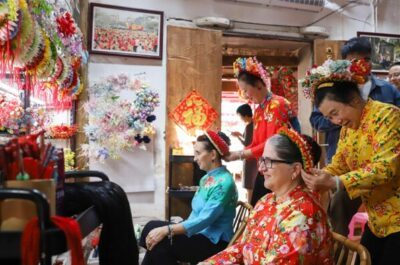

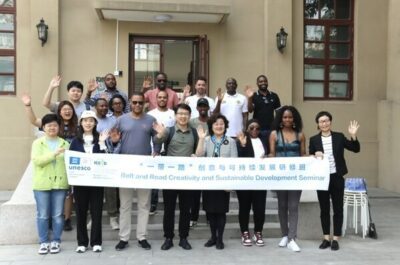









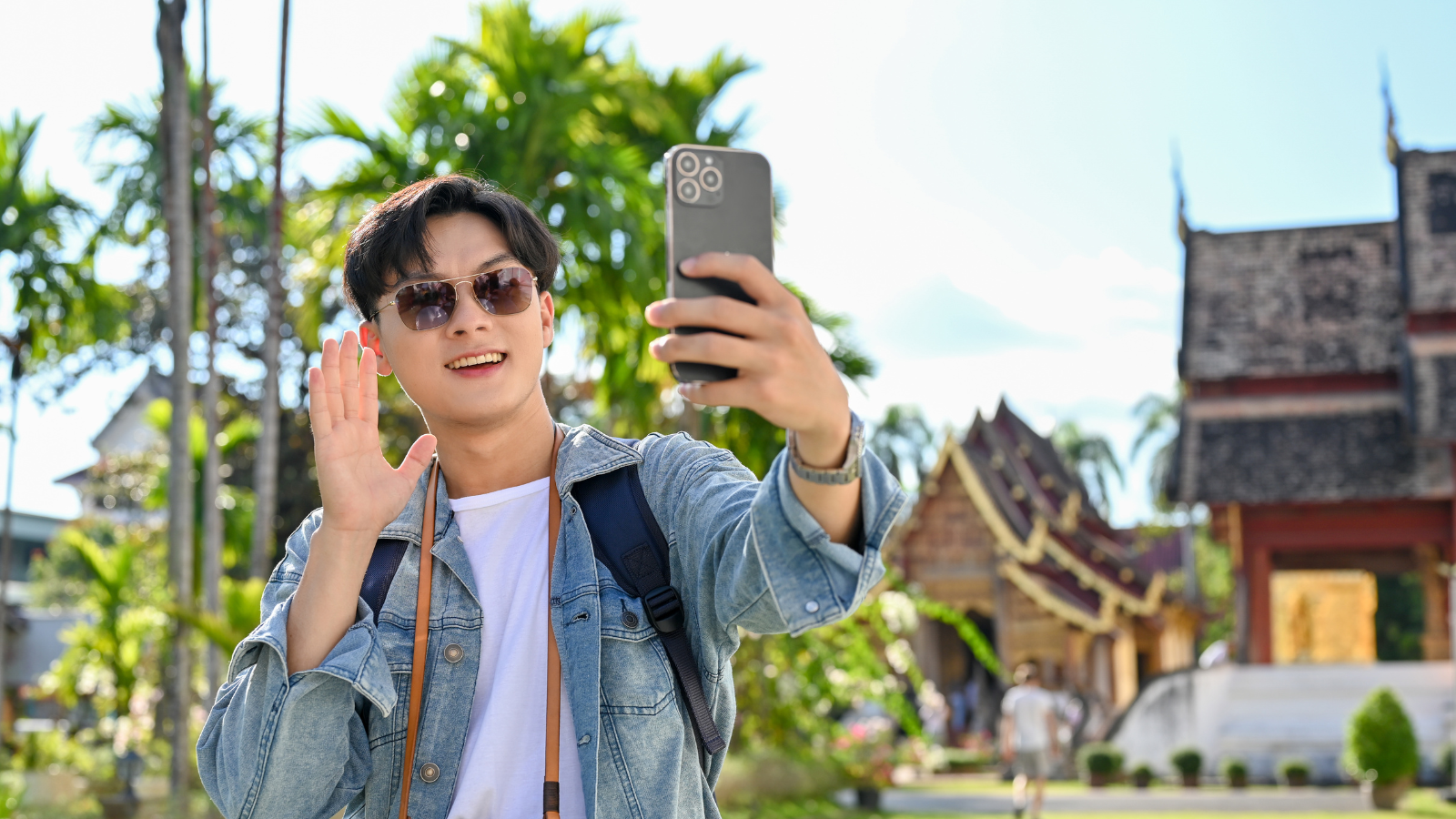



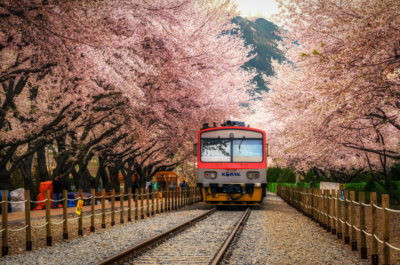
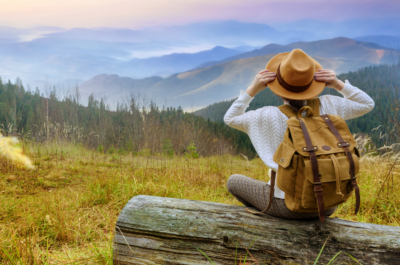
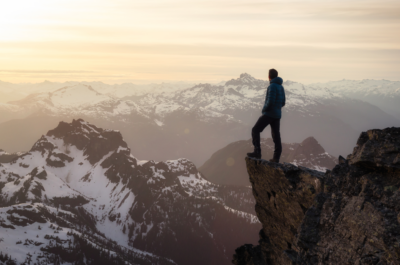








![[PR] PR_Ascott and Vimut Hospital_2024](https://www.traveldailynews.asia/wp-content/uploads/2024/04/PR-PR_Ascott-and-Vimut-Hospital_2024-400x265.jpg)





















































